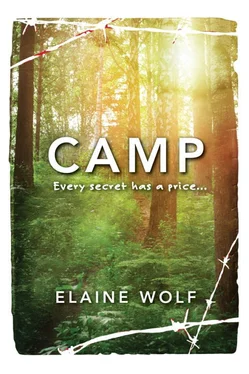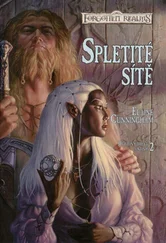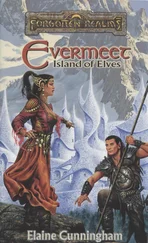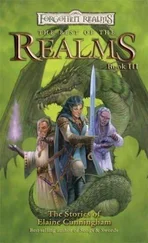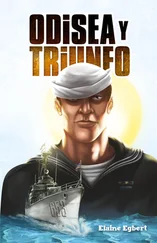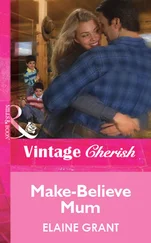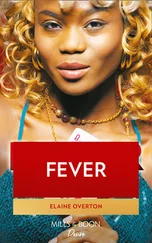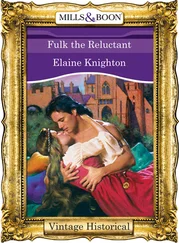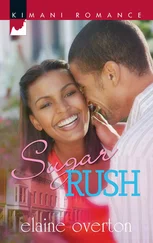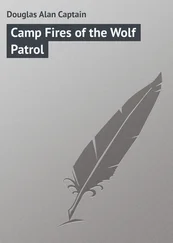“Hey, buddy, I’m sorry,” I called, sprinting upstairs. “Charlie, I’m sorry.” I raced to his room. Where was he? “Charlie!” Into my room. Empty. “Where are you?” No answer. “I’m sorry, Charlie. Where are you?”
Downstairs again. The front door was open. “Charlie! Charlie!” Outside. Into the street. “Charlie! Where are you?”
Nothing. Then barking. Loud. Ferocious. Zeus, the Sparbers’ black Lab. I saw all three in an instant: the dog; Charlie; my mother.
Her car took the corner as Zeus chased Charlie down the block.
“Charlie! Look out, Charlie!”
The screech of tires. A thumping sound: metal on bone. His body flew to the sidewalk.
“CHARLIE!”
Chapter 19
How Was This Possible?

“CHARLIE!”
I cried his name, knelt over his body. Such a tiny boy, legs bent like a rag doll’s. “No! Charlie!”
Sirens and red lights. Police cars. An ambulance. An officer pulled me up and wrestled me to the other side of the street. “No! Let me go! That’s my brother. Charlie!”
“I know, miss. I’m sorry.”
Another policeman grabbed my arm. He led me to my mother, sitting on the curb. She was missing a shoe. Her foot rested on a bright green leaf. It’s strange what I remember, what I choose to forget. My mother’s purse was open, her wallet on the ground next to it. She didn’t speak, not even when the officer tried to hand her driver’s license back. He placed it under the wallet. My mother didn’t notice. Her head stayed down, hands over her mouth.
“Charlie! Charlie!” I called. But my words were a whisper. My voice was dead. Only my tears told me I was alive.
Someone gave me paper cups. Water—for me, for my mother. I saw her from the corner of my eye. She lifted her cup in slow motion, as if trying to figure out what it was. Water dripped on her skirt, the green one from visiting day. The cup fell from her hand. But my mother didn’t move.
A policeman stood in front of her. She didn’t see the paramedics pack their gear without trying to stuff life back into Charlie. But I did. I watched as if my eyes were no longer part of my body. I saw it from somewhere high above as I looked down on my mother and me, looked down on my brother on the sidewalk across the street.
How was this possible, this movie I watched from the sky? One minute a boy—my brother, my Charlie. Then nothing.
The ambulance moved away. No sirens now. No noise. An officer said something about a tow truck. I think he asked my mother where her husband was.
I don’t remember walking down the block, walking home. What I recall is watching myself in Charlie’s room, on Charlie’s bed. I sat there turning wooden blocks on my lap. I turned them and turned them till my fingers were numb. Rectangle. Square. Triangle. Rectangle. Square. Triangle.
We buried him that Sunday. The night before, my father handed me a pill. “To help you sleep, honey. Doctor Stein says you and your mother need to rest.” I nodded, though I didn’t need help sleeping. Charlie lived in my dreams. All Saturday afternoon I had stayed in my room and slept, pulling Puppy to my face as if I were a little girl again.
I took the pill from Dad’s shaking hand. How could he go on as if it mattered if we ate, if we slept? Sure, I’d heard my father crying that whole night after Charlie died. But the next morning, he focused on taking care of my mother and me.
Neither of us had spoken after the accident, except to answer policemen’s questions. And even then, we tried to get by with nods and shrugs. It was only when one of the officers forced my mother to tell him about the accident that I heard her voice, soft and flat, the voice of a stranger. She was coming home from the market, my mother said. She had just turned our corner when Charlie ran in front of the car. The dog that chased him raced out of the way, she told the policeman, who asked the same questions the following day, when my parents sat next to each other on the living room sofa. The dog ran to the side, my mother said again, but Charlie didn’t.
From my perch on the top step, I listened as my father explained that Charlie and I must have been playing outside when the Sparbers’ dog got loose. “Amy is…” my father paused to swallow tears. “She was a wonderful sister. As my wife told you, Amy was taking care of Charlie while she was at the store.” Another pause. “Do we really have to go over this again, officer? I’m sure you can see how hard this is for all of us.”
“Yes, of course,” the policeman said. “I’ll be out of your way as soon as I talk to your daughter.”
I took the stairs slowly, watching myself put one foot in front of the other. I had killed Charlie. I had done it with my mother. I shared the blame, claimed the lion’s share of guilt. But no one knew that. My father had given my excuse. “Yes,” I told the officer. “We had just gone outside when Charlie saw Zeus. He took off before I could stop him.”
No funeral. Just a burial with a rabbi. The Hebrew prayers sounded like crying. Uncle Ed, Aunt Helen, and Robin stood on one side of the grave, but I didn’t look at them. My father held on to my mother and me on the other side of the hole in the ground. He let go only to toss dirt onto the small casket and to hand the shovel to my mother, her face carved of stone. She barely scooped up anything, then passed the shovel to me. I saw myself drizzle earth onto Charlie’s coffin. “I love you, buddy.” My lips moved, but there was no sound.
After the burial, the world rolled on and left us behind. Each day I took a block from Charlie’s room and carried it to mine, where I’d cling to sleep. I slept to see Charlie in my dreams, and I slept to avoid my parents. We didn’t talk about the accident. We didn’t talk about anything—just spun cocoons of grief and disappeared inside them.
I didn’t reply to the note from Erin or the sympathy card from Donnie. How had they found out? Had Uncle Ed or Aunt Helen called them?
“You should write back to Erin,” my father told me. “Or you could call and make a date. I’ll drive you to visit her.” I didn’t want to explain why I couldn’t see Erin. I hadn’t told my father—hadn’t told anyone—that Charlie would be alive if I hadn’t gone to camp. The logic was simple: Without camp, I wouldn’t have been tempted to invade my mother’s past. And Charlie would still be here. So how could I visit Erin and talk about Rory, sing silly camp songs, and smile at Andy’s name? I didn’t even answer Andy’s letter, which came shortly after school started.
Tenth grade. Kids avoided me as if death were contagious. And if girls caught my eye, the pity in theirs made me eager to run. I stopped riding the school bus. The noise was too loud; the life, too much. So I walked every day by myself. One morning Danielle’s mother pulled up and offered me a ride. But I didn’t take it. Even in the cold, I wanted to walk. I needed to feel my feet slap the pavement. I needed to remember my body was alive.
My mother didn’t seem to care if I grabbed a coat when the weather turned cold. She didn’t say a word about what I wore or how I fixed my hair or if I ate the wrong things. She no longer noticed if I made my bed or made the honor roll.
But I noticed her. She stopped plumping pillows on the sofa. Even when people came to visit—neighbors stopping by with casseroles; Charlie’s speech therapist and two of his teachers from The Woodland Center—my mother didn’t care if I replaced the toilet paper, if the kitchen floor looked waxed, if her shoes matched her outfit. Sometimes she just shuffled around in a bathrobe and slippers, as if she’d forgotten to get dressed.
Читать дальше
